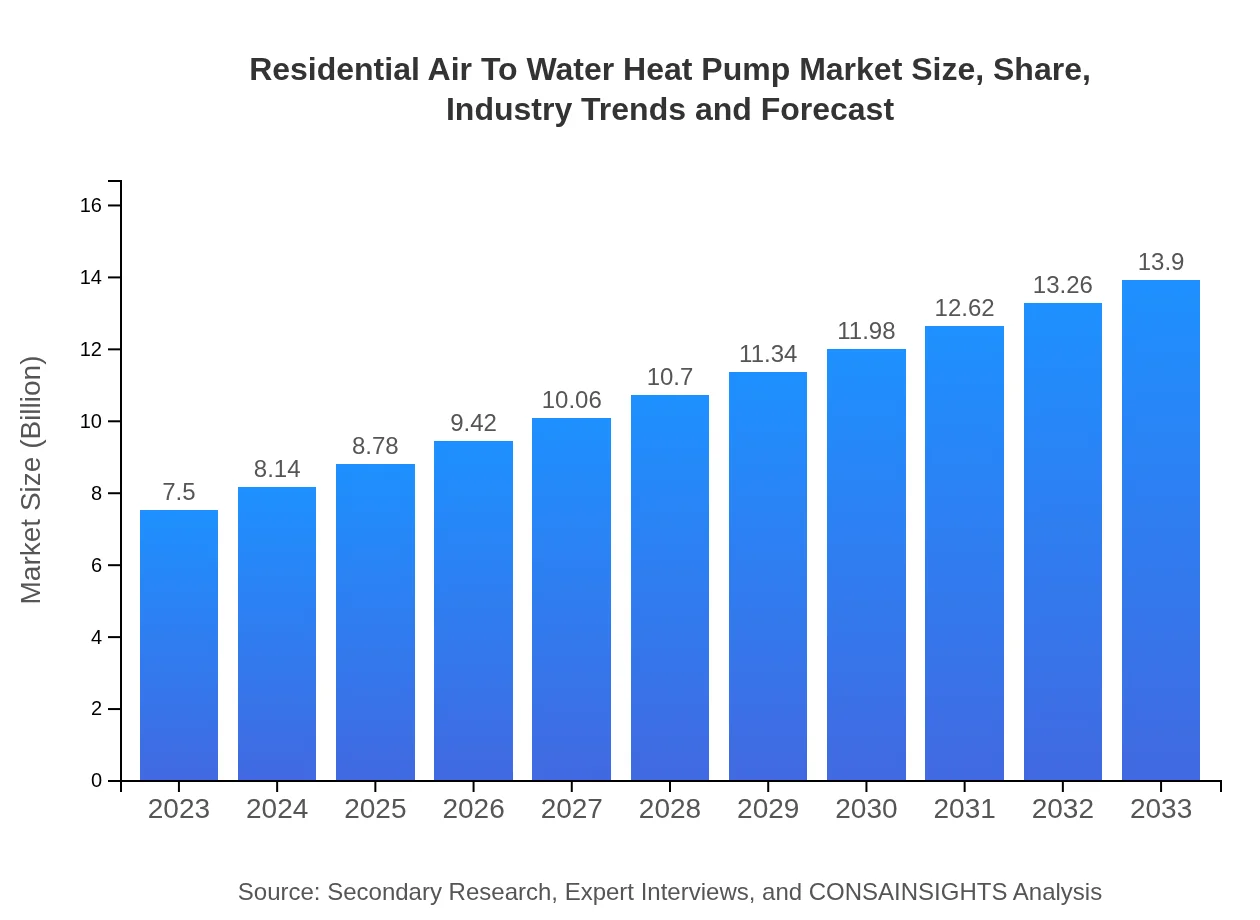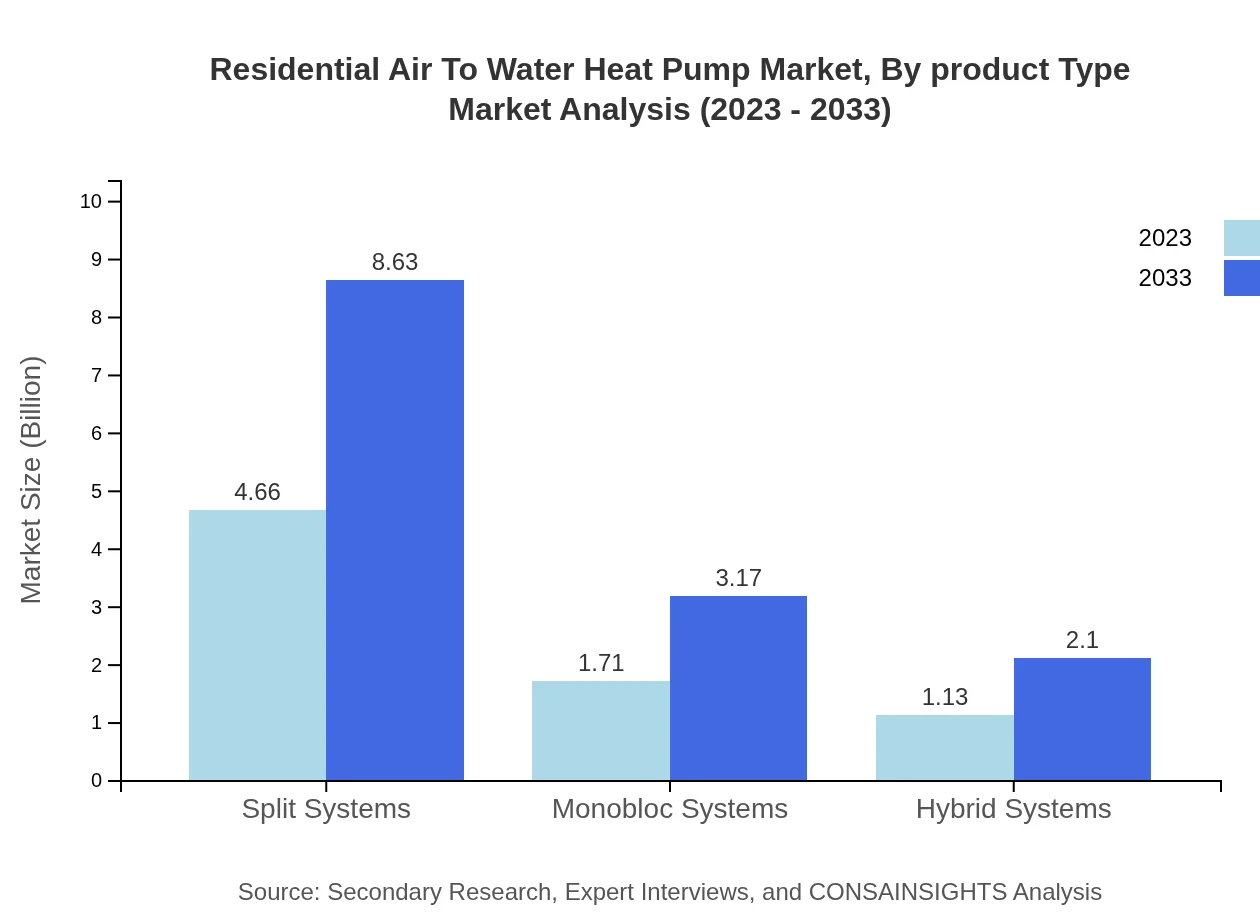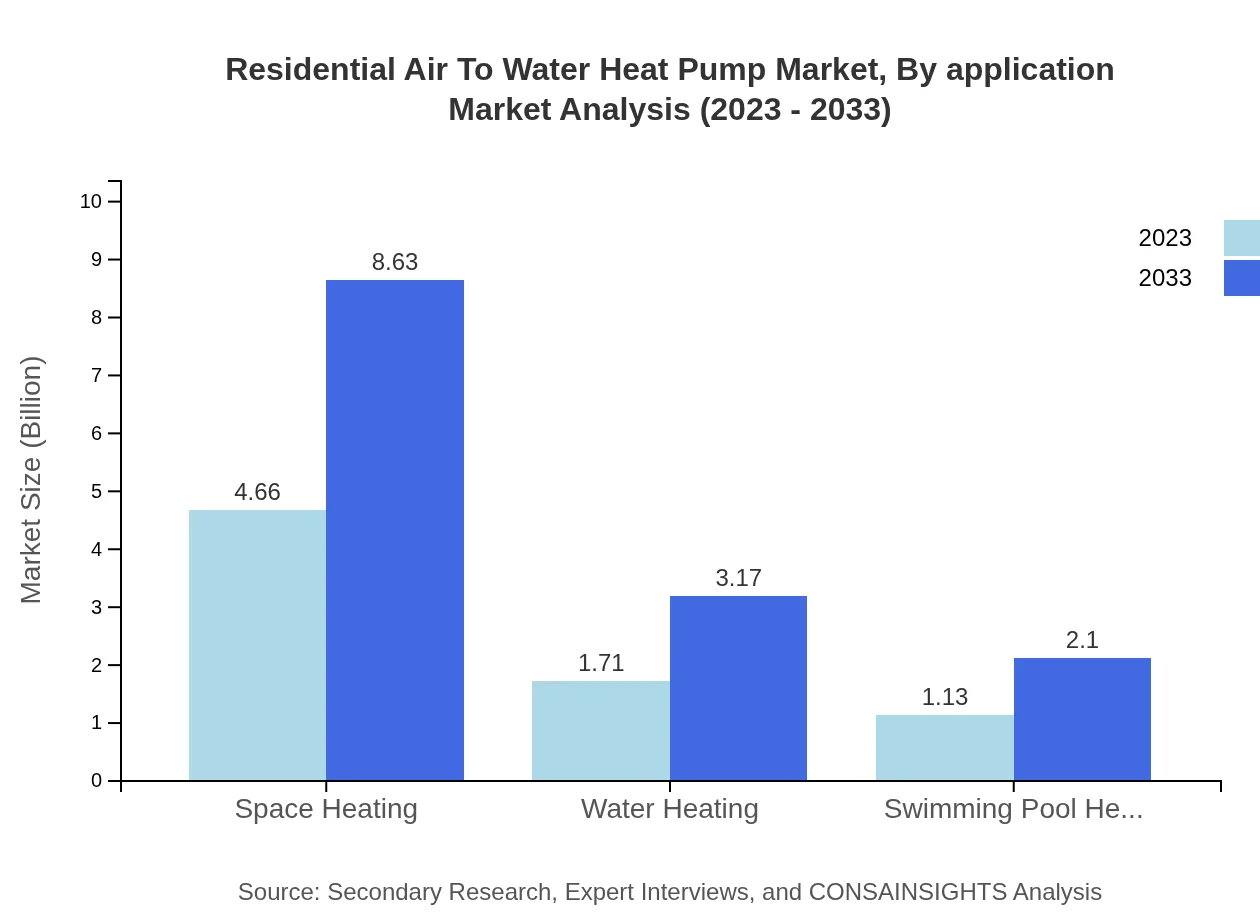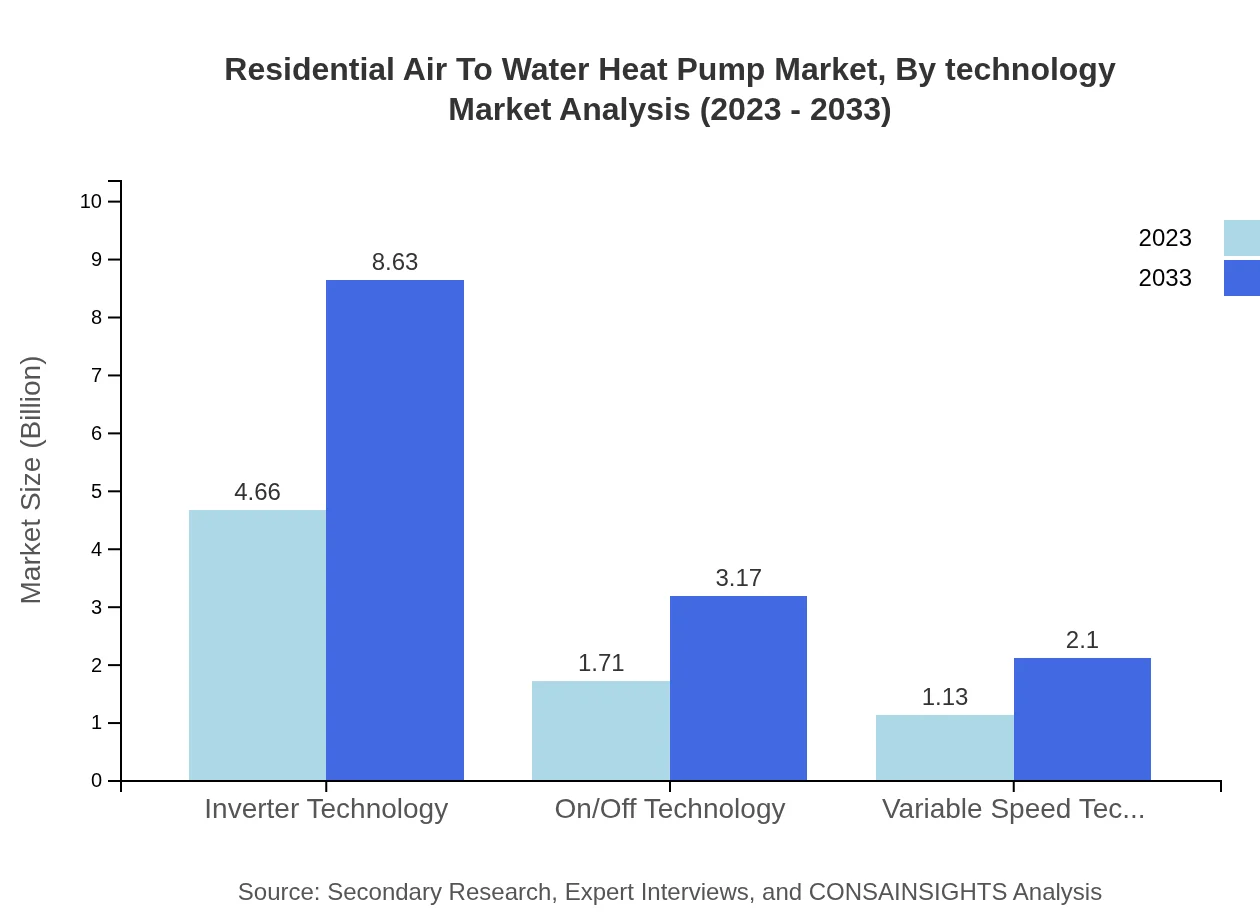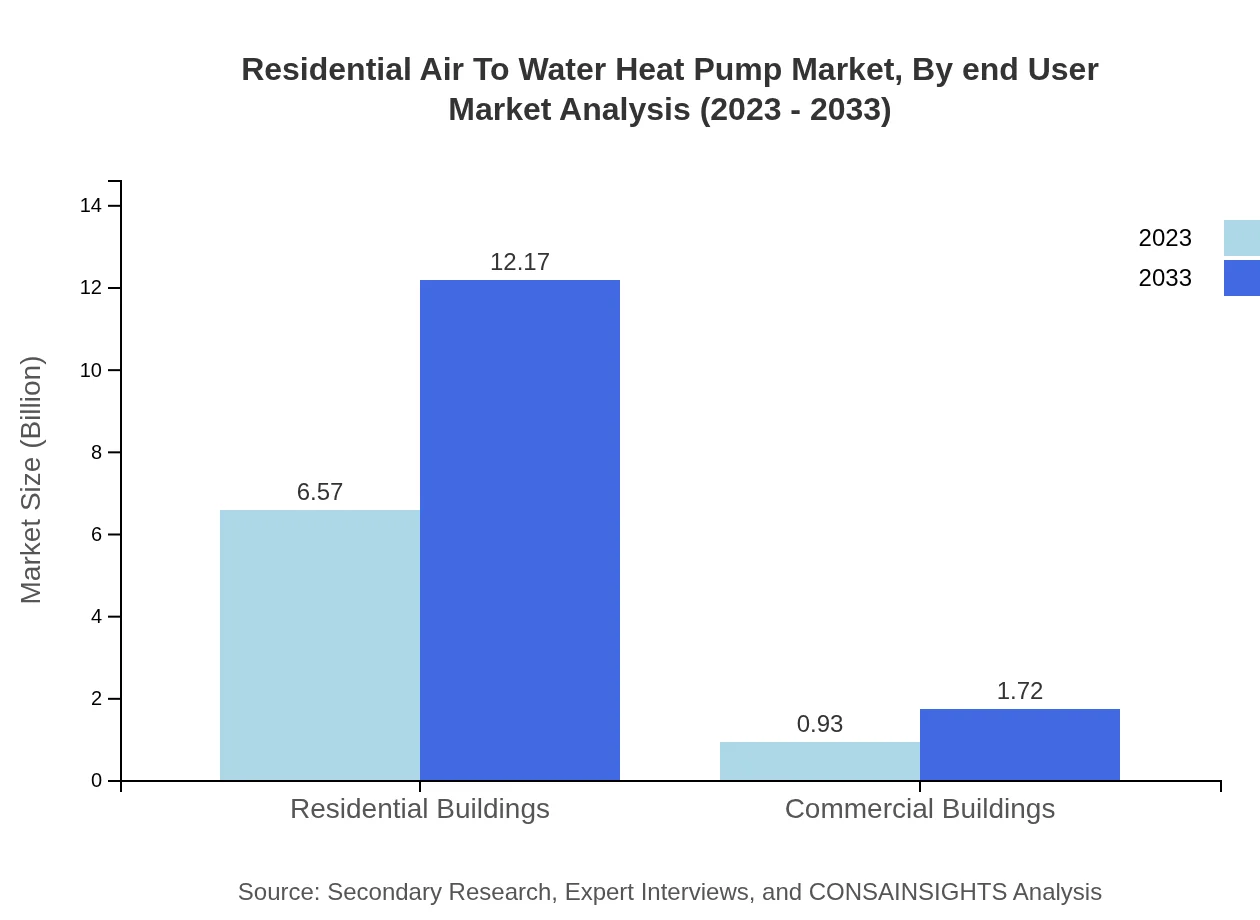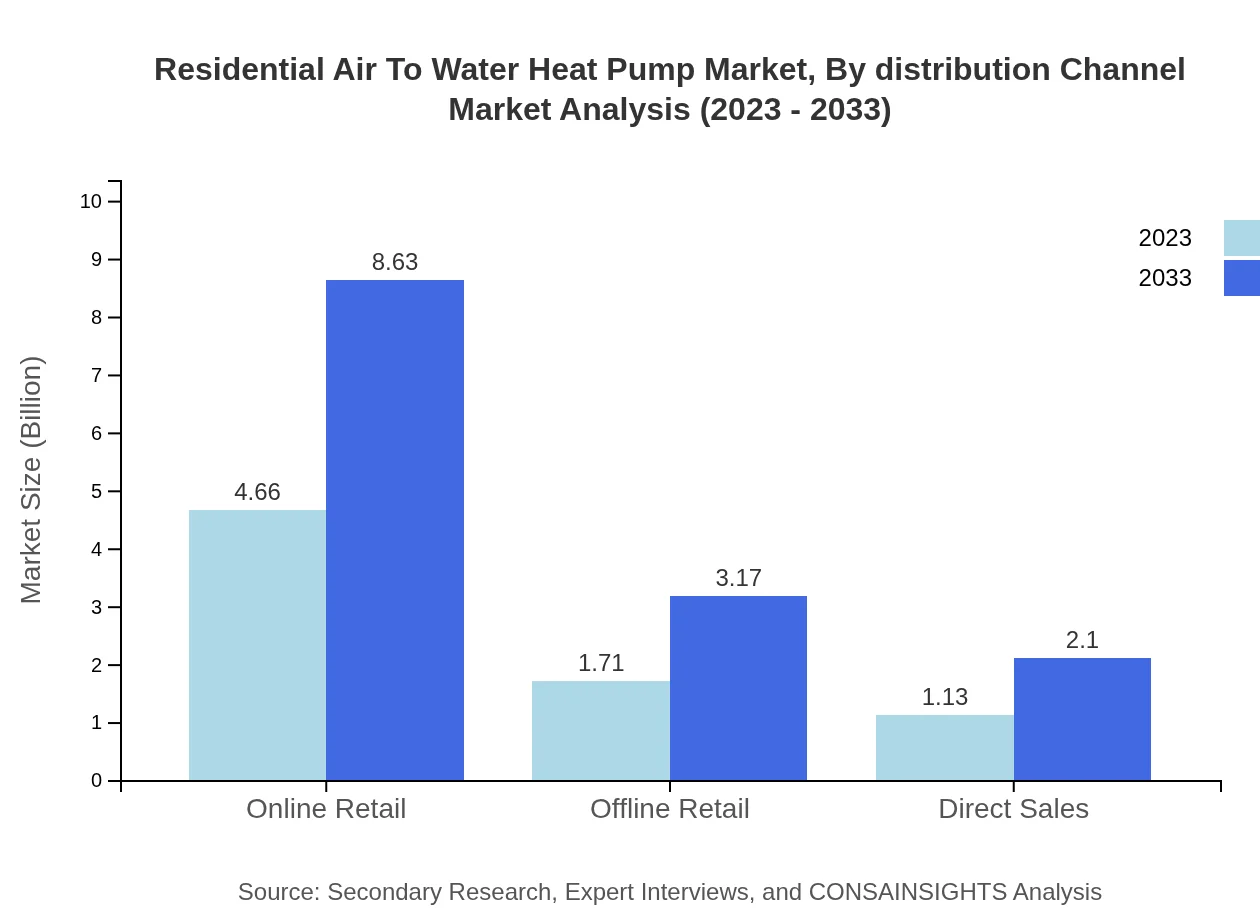Residential Air To Water Heat Pump Market Report
Published Date: 22 January 2026 | Report Code: residential-air-to-water-heat-pump
Residential Air To Water Heat Pump Market Size, Share, Industry Trends and Forecast to 2033
This report covers the Residential Air To Water Heat Pump market, providing insights into market trends, regional analysis, technology advancements, and future forecasts from 2023 to 2033.
| Metric | Value |
|---|---|
| Study Period | 2023 - 2033 |
| 2023 Market Size | $7.50 Billion |
| CAGR (2023-2033) | 6.2% |
| 2033 Market Size | $13.90 Billion |
| Top Companies | Mitsubishi Electric, Daikin, Samsung , Bosch Thermotechnology, Viessmann |
| Last Modified Date | 22 January 2026 |
Residential Air To Water Heat Pump Market Overview
Customize Residential Air To Water Heat Pump Market Report market research report
- ✔ Get in-depth analysis of Residential Air To Water Heat Pump market size, growth, and forecasts.
- ✔ Understand Residential Air To Water Heat Pump's regional dynamics and industry-specific trends.
- ✔ Identify potential applications, end-user demand, and growth segments in Residential Air To Water Heat Pump
What is the Market Size & CAGR of Residential Air To Water Heat Pump market in 2023?
Residential Air To Water Heat Pump Industry Analysis
Residential Air To Water Heat Pump Market Segmentation and Scope
Tell us your focus area and get a customized research report.
Residential Air To Water Heat Pump Market Analysis Report by Region
Europe Residential Air To Water Heat Pump Market Report:
The European market is particularly robust, expected to grow from $2.61 billion in 2023 to $4.83 billion by 2033. Countries like Germany, France, and the UK are leading the charge with substantial investments in sustainable heating technology, supported by government initiatives promoting green energy.Asia Pacific Residential Air To Water Heat Pump Market Report:
In the Asia Pacific region, the market is projected to grow from $1.28 billion in 2023 to $2.37 billion in 2033, driven by increasing urbanization and government initiatives focusing on renewable energy solutions. Countries like Japan, China, and Australia are leading the way due to favorable policies and rising energy costs.North America Residential Air To Water Heat Pump Market Report:
The North American market, led by the United States and Canada, will expand from $2.55 billion in 2023 to $4.72 billion in 2033. Increased awareness about climate change and the tightening of energy efficiency regulations are significant contributors to this growth.South America Residential Air To Water Heat Pump Market Report:
The South American market is expected to grow from $0.66 billion in 2023 to $1.21 billion by 2033. Brazil and Argentina are at the forefront of this growth as they invest in energy efficiency and environmentally friendly technologies to improve heating systems.Middle East & Africa Residential Air To Water Heat Pump Market Report:
In the Middle East and Africa, the market will see growth from $0.41 billion in 2023 to $0.76 billion in 2033. While still nascent, the adoption of residential air-to-water heat pumps is increasing, driven by a growing focus on sustainable solutions and energy efficiency.Tell us your focus area and get a customized research report.
Residential Air To Water Heat Pump Market Analysis By Product Type
The market for residential air-to-water heat pumps by product type includes inverter, on/off, and variable speed technologies. In 2023, inverter technology dominates the market with a size of $4.66 billion, maintaining a share of 62.07%, and is set to increase to $8.63 billion by 2033. In contrast, on/off technology has a size of $1.71 billion (22.83% share) in 2023 and is expected to reach $3.17 billion by 2033. Variable speed technology, though smaller, will grow from $1.13 billion (15.1% share) to $2.10 billion.
Residential Air To Water Heat Pump Market Analysis By Application
By application, space heating leads with a size of $4.66 billion in 2023, expected to double to $8.63 billion by 2033. Water heating represents $1.71 billion (22.83% share) in 2023, projected to increase to $3.17 billion. Swimming pool heating, currently valued at $1.13 billion (15.1% share), is also forecasted to grow to $2.10 billion.
Residential Air To Water Heat Pump Market Analysis By Technology
This segment is dominated by inverter technology, making up 62.07% of the market share in 2023. On/off technology and variable speed technology follow, with shares of 22.83% and 15.1% respectively. This trend is expected to remain throughout the forecast period owing to the efficiencies offered by inverter systems.
Residential Air To Water Heat Pump Market Analysis By End User
The residential segment comprises the larger share of the market, significantly driving the growth of air-to-water heat pumps. This segment is projected to maintain a steady share due to increasing investments in residential energy efficiency, while the commercial sector also shows promising growth as businesses seek sustainable heating solutions.
Residential Air To Water Heat Pump Market Analysis By Distribution Channel
In terms of distribution channels, online retail is leading with a share of 62.07%, while offline retail and direct sales hold shares of 22.83% and 15.1% respectively. The shift towards e-commerce platforms is driving the growth of air-to-water heat pumps, especially among tech-savvy consumers.
Residential Air To Water Heat Pump Market Trends and Future Forecast
Tell us your focus area and get a customized research report.
Global Market Leaders and Top Companies in Residential Air To Water Heat Pump Industry
Mitsubishi Electric:
A global leader in air-source heat pump systems, Mitsubishi Electric is known for its innovative and energy-efficient solutions for residential heating.Daikin:
With a strong presence in the HVAC sector, Daikin produces advanced air-to-water heat pumps that prioritize sustainability and efficiency.Samsung :
Samsung has made significant strides in producing air-to-water heat pumps, focusing on smart technology integration for enhanced user comfort.Bosch Thermotechnology:
Bosch specializes in energy-efficient heating products, including air-to-water heat pumps, and is recognized for its commitment to sustainable practices.Viessmann:
Viessmann notable for its integration of renewable energy solutions into its heating systems, including high-quality air-to-water heat pumps.We're grateful to work with incredible clients.









FAQs
What is the market size of residential Air To Water Heat Pump?
The global residential air-to-water heat pump market was valued at $7.5 billion in 2023, with a projected CAGR of 6.2% from 2023 to 2033. This growth reflects increasing demand for energy-efficient heating solutions.
What are the key market players or companies in this industry?
Key players in the residential air-to-water heat pump market include major companies in HVAC systems. Specific company names will depend on current data and market analysis used by Consainsights for the most accurate assessment.
What are the primary factors driving the growth in the residential air To Water heat pump industry?
Growth drivers include increasing energy efficiency regulations, rising energy costs, and a shift towards sustainable energy solutions. Consumer awareness of environmental impacts and government incentives further enhance market expansion.
Which region is the fastest Growing in the residential air To Water heat pump market?
Europe represents the fastest-growing region, with the market projected to grow from $2.61 billion in 2023 to $4.83 billion by 2033, showcasing robust demand for eco-friendly heating solutions.
Does ConsaInsights provide customized market report data for the residential air To Water heat pump industry?
Yes, ConsaInsights offers customized market reports tailored to specific needs within the residential air-to-water heat pump industry, ensuring relevant insights for various stakeholders.
What deliverables can I expect from this residential air To Water heat pump market research project?
Deliverables typically include comprehensive market analysis, trend identification, competitive landscape insights, regional data, and projections, alongside detailed segment analysis for informed decision-making.
What are the market trends of residential air To Water heat pumps?
Current trends include a shift towards inverter technology, growing reliance on online retail channels, and increasing integration of hybrid systems, reflecting consumer preferences for efficiency and convenience.

